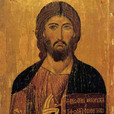
Summary: This Episode is titled “God’s Ox.”I begin with a thanks to those who’ve given a review of CS on the iTunes store where many subscribe to the podcast. While iTunes is just one outlet for the podcast world, it turns out to be THE MAJOR venue for rating and promoting podcasts.Look, what we’re doing here is ultra-amateur. CS is a labor of love and makes no claim at being a scholarly review of history. I share these episodes in the hope others can tag along and learn alongside me. I make no claim that this is exhaustive. On the contrary; it’s a cursory account meant to give a brief overview of Church history; a kind of verbal fly-over; with occasional moments when we linger over something interesting. I aim to give listeners a basic sense of when events occurred in relation to each other; who some of the main actors and actresses were with the part they played. And as I’ve said before, the episodes are intentionally short to make it easy to listen in the brief snatches as people are working out, doing chores, going for a walk, driving to work. What’s a kick is to hear about all the ways people HAVE connected to CS. Several have queued up a bunch of episodes and listened as they drive across country or fly overseas.I was at a conference a while back, talking quietly to some friends when a guy sitting in the row in front of me turned around and said, “Are you Lance? Do you have the podcast, Communio Sanctorum?” He recognized my voice. We had a great time getting to know each other better. Another time while on a tour of Israel, I met a guy in the dining room of one of our hotels who’s a fan of the podcast. What a kcick that was.Anyway – I appreciate it when people leave comments on the FB page or send an email. But best of all is to rate the podcast and write a quick review on iTunes, then tells your friends to give us a listen.Now, back to the Scholastics.Though fueled by the work of Abelard and Anselm, Scholasticism reached its zenith when the Greek philosopher Aristotle was re-discovered by scholars in Europe. The Crusades made contact with Muslim scholars who debated Aristotle’s philosophy. Their thoughts returned with the Crusaders and were passed on to the theological schools located in the mendicant orders of the Dominicans and Franciscans. These were the groups the Church had invested with the study of theology. During the mid-13th C, there was something of an Aristotelian revival in these schools. It’s interesting that at the dawn of the 13th C, the reading of Aristotle was banned! After all, he was a pagan Greek. What could Christians learn from him? But, as any college knows, there’s one way to make sure something gets read. Ban it, place a prohibition on it. So a couple decades later, portions of Aristotle were allowed to be read. By mid-Century, he was required reading and both he and his mentor Plato and his teacher Socrates were unofficially baptized and made over into pre-Christian saints.It makes sense that Aristotle’s philosophy would be resurrected when we remember the goal of the Scholastics was to apply reason to faith; to seek to understand with the rational mind what the spirit already believed. It was Aristotle who’d developed the rules of formal logic.During the Middle Ages in Europe, all learning took place under the watchful eye of the Church. Theology reigned supreme among the sciences. Philosophers like Aristotle, the Muslim Averroes [ah-ver-O –ee], and Jewish Maimonides were studied alongside the Bible. Scholars were especially fascinated by Aristotle. He seemed to have explained the entire universe, not by using Scripture but by his powers of observation and reason.For some ultra-conservatives, this emphasis on reason threatened to undermine traditional belief. Christians had come to think that knowledge could come only through God’s revelation, that only those to whom God chose to reveal truth could understand the universe. How could this be squared with the knowle
